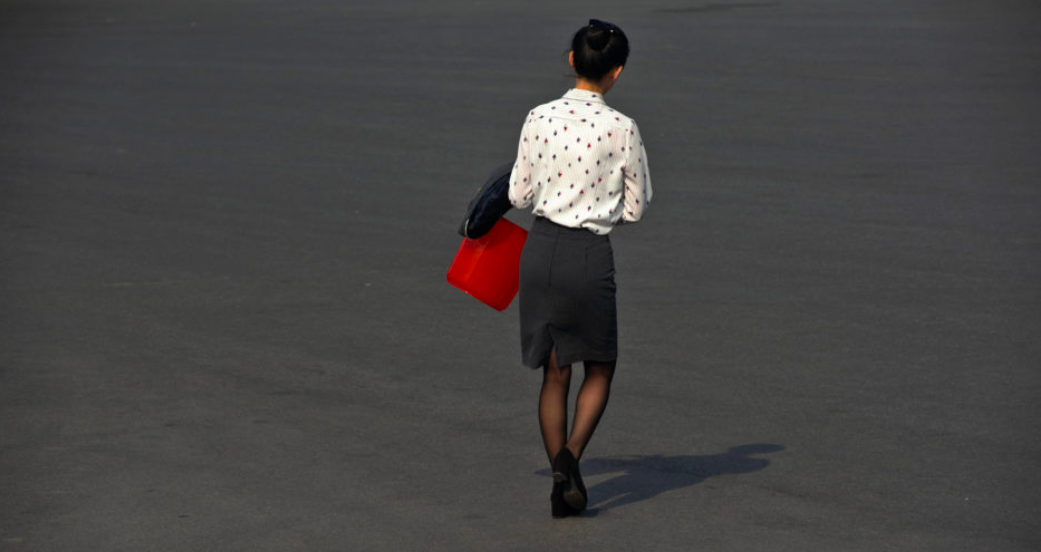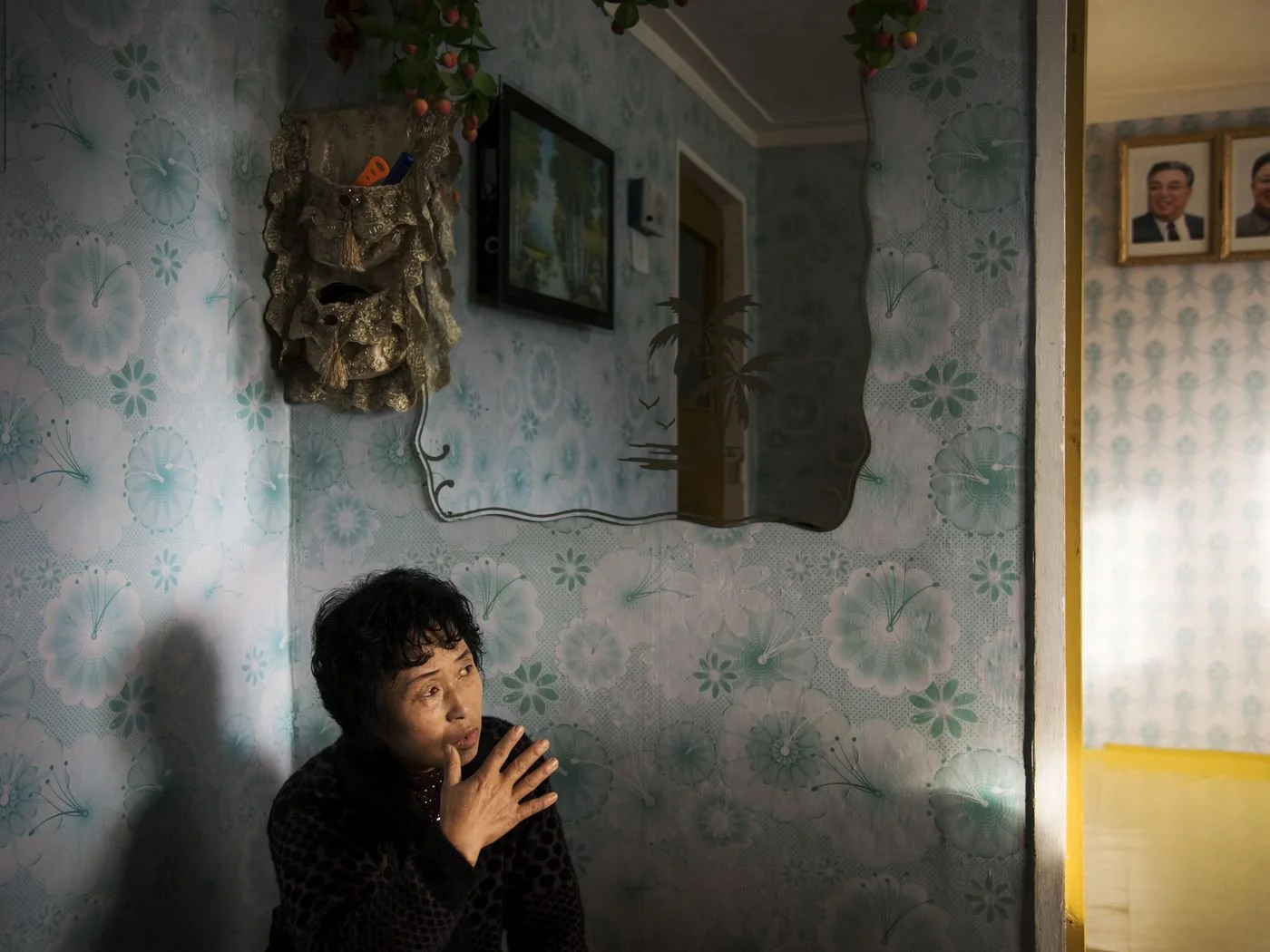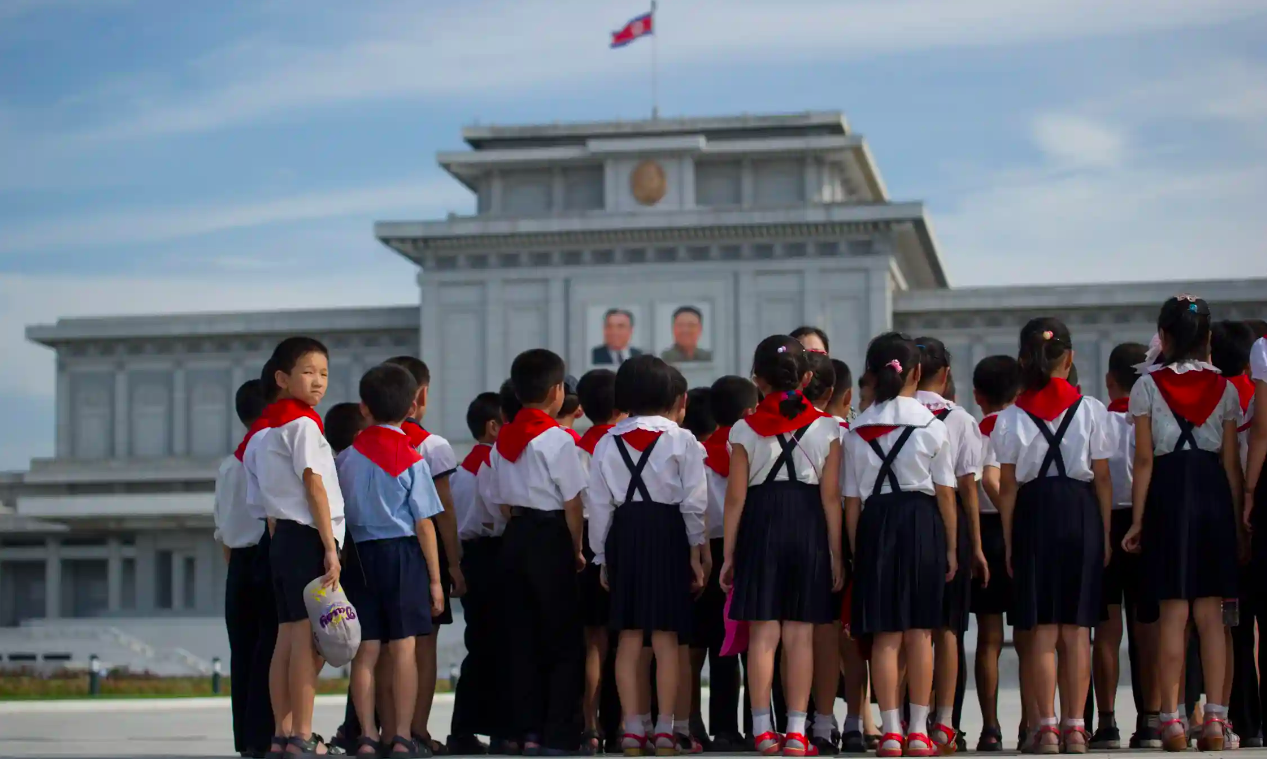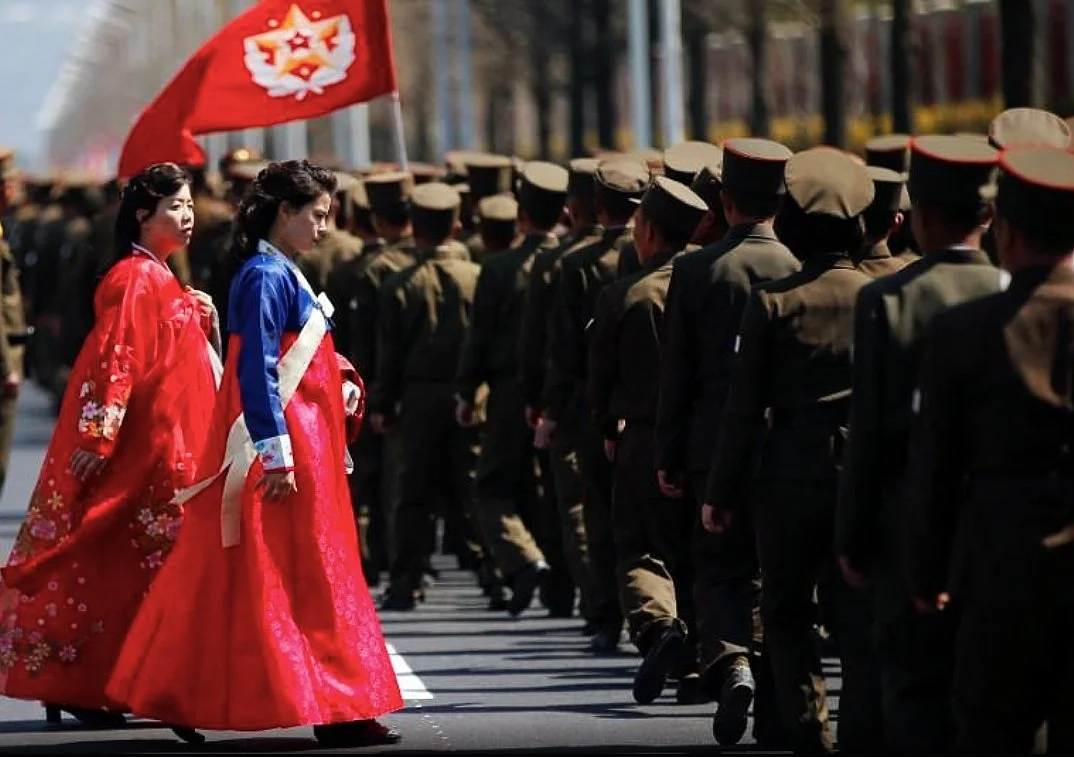Gender equality and discrimination against women in North Korea
By the HanVoice Education Committee
August 3, 2022
Image by NK News
Article 77 of the North Korean constitution provides women with “equal social status and rights with men.” North Korea guaranteed gender equality and women’s rights through law even prior to the country's establishment in 1948—a fact that North Korea frequently refers to. In its most recent Voluntary National Review of the Sustainable Development Goals (SDGs), North Korea claimed that “the DPRK has achieved gender equality [a] long time ago, thus most of the targets of the global SDGs have been achieved.”
But how do North Korea’s own claims about gender equality hold up against reality?
Understanding gender equality and discrimination in North Korea comes with limitations. North Korea rarely provides statistics on internal matters. Access inside the country for researchers is nearly impossible—especially since the country has maintained a strict border closure due to COVID-19. For this reason, most information about gender equality and discrimination against women comes from North Korean escapees.
Escapee testimonies suggest that gender-based violence is pervasive in North Korea. In a Human Rights Watch report, all 26 North Koreans who were interviewed revealed that “every woman in North Korea they knew had experienced gender-based violence at some point in their lives, especially domestic violence and sexual harassment.” This testimony aligns with findings from the 2014 Commission of Inquiry report, which found that “discrimination against women [in North Korea] remains pervasive in all aspects of society.”
Image by Ed Jones, AFP
Domestic violence is especially common, yet it is usually regarded as a private issue that is grossly underreported. One North Korean woman testified that domestic violence would only be reported to public authorities if someone is killed. Another North Korean escapee stated that even if a woman reports domestic violence to the authorities, they would be told to “handle your family problems between yourselves.”
Sexual harassment also goes underreported in North Korea and is not regarded as a serious issue. In interviews with North Korean escapees, Human Rights Watch found that sexual harassment—including both physical and verbal harassment—is widely common in North Korea, including the workplace and any crowded or public place.
Yet, there are no legal remedies for victims of gender-based violence. Social stigma and victim blaming mean that most victims of gender-based violence do not report the abuse. One North Korean woman, for example, lost her job after defending herself against sexual assault at her workplace.
Gender-based violence is also widespread in North Korea’s detention centres and prison camps. In a survey with 1,125 North Koreans resettled in South Korea, 37.7 percent said that sexual harassment and rape in detention centres is “common,” while 15.9 percent said it was “very common.” Women in political prison camps may be subject to rape and forced abortions, which are crimes against humanity.
Although North Korea remains a highly patriarchal society, there has been a shift in traditional gender roles in the decades since the 1990s famine. Due to the rise of the jangmadang (marketplace)—which has become crucial to survival since the collapse of the public distribution system—more North Korean women are now emerging as the main breadwinners of their households. In fact, women make up around 80 percent of marketplace vendors and can earn double the monthly salary a man makes in one day.
Yet, gender-based violence is common even in the marketplace where women dominate. Human Rights Watch interviewed 17 North Korean women who faced sexual harassment during their work as traders in the marketplace. Sexual abuse against women who are transporting or selling goods is often associated with bribes or fines and is committed by male public officials including soldiers and police. One North Korean woman, who worked as a vendor at a marketplace in the city of Hyesan near the border with China, told Human Rights Watch that she was raped by market guards and lacked the power to resist or report the abuse.
Women’s lack of legal protection in the marketplace and elsewhere is also accompanied by a lack of social protection. Since free markets remain illegal in North Korea, women working in the marketplace do not receive social protections such as state pension or access to childcare services.
Image by Ed Jones, AFP
How has North Korea attempted to address gender inequality? North Korea maintains that gender-based violence is not an issue in its society. In reference to SDG 5, which calls for gender equality and rights for all women and girls, North Korea claimed that, “mental and physical violence is not a social issue in the DPRK where the people are masters of everything and everything serves for people.”
North Korea maintains that gender-based violence is not an issue in its society.
As a state party to the Convention on the Elimination of Discrimination Against Women (CEDAW), North Korea has previously claimed that its domestic laws comply with all sections of CEDAW. In 2010, North Korea passed the Law on the Protection and Promotion of the Rights of Women which prohibits domestic violence and can be seen as an attempt to align its domestic laws with recommendations from CEDAW.
However, Human Rights Watch found that the 2010 law has been poorly implemented and “does not criminalize domestic violence, nor does it provide any civil sanctions for offenders, legal protections or services for victims, or rehabilitation programs for perpetrators.” The Citizens’ Alliance for North Korean Human Rights also found several omissions from the 2010 law that are inconsistent with North Korea’s obligations as a party to CEDAW. For example, the law does not provide for the collection of data and statistics on gender, specifically prohibit discrimination based on sexual orientation, or pledge to remove gender stereotypes in education.
In addition to a lack of adequate legal protection for victims of gender-based violence and discrimination, North Koreans do not receive education on the prevention of sexual violence nor sex education. Moreover, testimony from North Korean escapees reveals that the Korean language, as it is used in North Korea, “lacks specific vocabulary on sexual and gender-based violence, domestic violence, sexual abuse, assault, and harassment.”
Women are also severely underrepresented in public life. The Commission of Inquiry found that women only make up around 5 percent of the Workers’ Party of Korea Central Committee Members and Candidate Members and 10 percent of central government workers.
In its Voluntary National Review, North Korea claimed that it is “further strengthening the rights of women in all domains of political, economic and social life.” Based on North Korea’s data provided to CEDAW, however, the number of women in political life has not increased significantly. From 2002 to 2016, for example, the number of female judges and female officials in the Ministry of Foreign Affairs increased by only 1 to 2 percent.
Image by Damir Sagolj, Reuters
North Korea’s claims about gender equality are severely at odds with reality.
In sum, North Korea’s claims about gender equality are severely at odds with reality. Despite laws designed to guarantee women’s rights and equality, discrimination against women and gender-based violence are pervasive in North Korean society.




